Training is focused on finding practical solutions for an enterprise and can be carried out in the form of intensive sessions and seminars.
Seminars aim at introducing new principles, concepts and terms. They make the participants think about the new opportunities and try the new paradigm of thinking, find new ideas. The seminars are not necessarily conducted at the plant. The programs have been practiced for many years, and they allow to solve the given tasks with maximum efficiency. The trainers have a broad practical experience, there are lots of real life cases, and these classes are excitingly interesting indeed.
Intensive sessions are practical activities where the use of lean tools is trained and certain production figures are worked at. A session is conducted at the production site or in an ajacent place. During the training every participant is to complete certain tasks and solve some selected problems. Thus we achieve a perfect understanding of the information given, and the further use of the new knowledge is highly effective.
take place in a study room
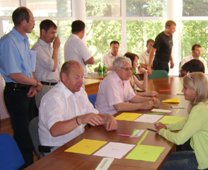
The seminar participants will be aware of the origin, principles and philosophy of lean production. The knowledge of waste types and the instruments of resource engagement come through business games and case simulations. The methods taught at the seminar aim at detecting, preventing and systematic elimination of all waste types. The participants will work out the skill to define wastes, good enough to put it to practice on their own.
2 days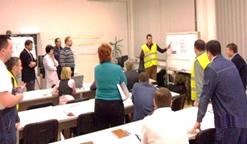
Lean tools are becoming an indispensable part of a modern methodology arsenal of a departmental or line manager, a member of a project or an improvements participant group. This seminar will help start a correct use of lean tools.
2 days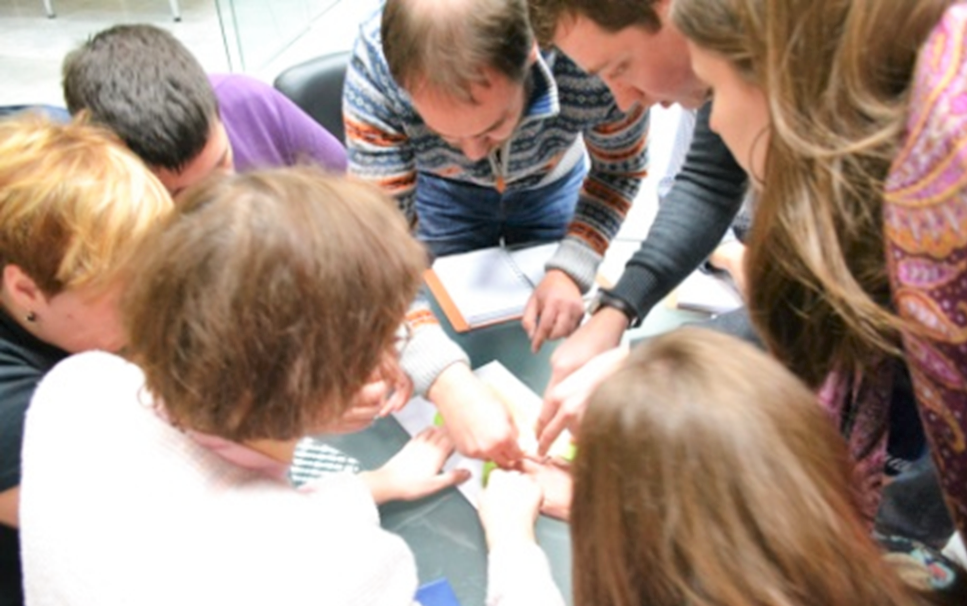
The training will help its participants understand the manager’s role in lean concept, become aware of his/her motivation in the project and possibilities to influence the continuous improvement process. A deeper understanding of psychological aspects of leadership, management and motivation will give the participants an opportunity to succeed and create a positive atmosphere in the time of change.
1 day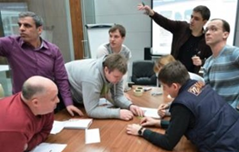
The training will give knowledge about all key aspects of a large-scale lean project implementation. The participants will be able to learn the key instruments of project management at all its stages. During the training they will study typical solutions of implementation strategy, KPIs, roadmap and a lean project structure.
1 dayare meant to solve practical issues of a company
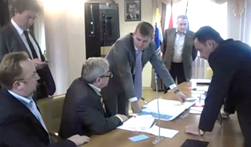
International companies’ experience proves that one of the methods of a sustained and constant business development is an Enterprise Production System model. It enables to align the basic shared values and an organizational development program.
In the session runtime, the participants create a production system development strategy, including a concept, goals, tasks, KPIs, change management structure and a roadmap.
2 days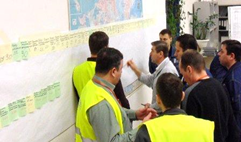
The session participants will get to understand the SMED principles, as this tool is used to reduce the time of changeover, retooling and refitting. The learned skills will enable the participants to use SMED independently to increase the machines’ output and ensure the production flexibility. The session will also result in reduced changeover time for pilot equipment units.
4 days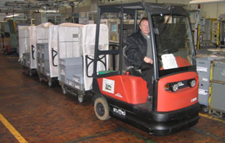
Internal logistics is a complex of pull tools that serve the functions of: production planning, output levelling, synchronization between production areas, and with warehouses. The session participants will learn the principles of a pull information system. During the practical session they draft a logistic solution and work out a plan for its pilot application and further implementation. The final solution is aimed at higher production flexibility, reduced lead time and inventory and increased safety.
5 days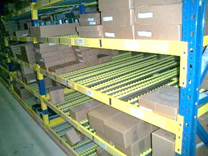
Lean warehouse concept crushes a traditional warehouse paradigm opinion, that the functioning of a warehouse cannot be standardized. This gives a chance to make the warehouse an element of the lead time rhythm.
4 days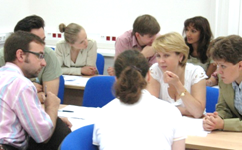
This session is aimed to teach the participants to define waste in the office, in the area of administrative processes. Effective office processes bring costs down, increase the internal and external customers’ satisfaction. During the practical session the participants go through a full cicle of pilot process improvement.
3-5 days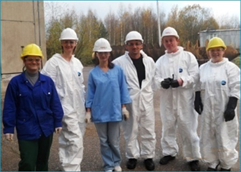
5S principles seem obvious, but attempts to introduce this method on the production site without any assistance lead to multiple questions on part of initiators and participants. We offer a form of training, when the participants go through the 5S stages and take practical steps in applying 5S in a pilot area. After they have got the skill of planning, organizing, preparing and implementing the 5S measures, the session participants can roll out achieved results to other areas on their own.
3-5 days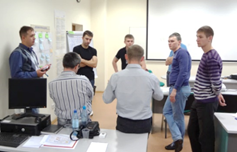
Focused problem solving is used to bring up the equipment capacity, improve quality and solve quality related problems in products and services and tackle safety issues. The concept of focued improvement can be applied to any kind of activity.
The session participants will get to know the focused problem solving approach. They will chose a practical example of equipment problem solving and they will start working on it to fully eliminate it in the future.
4 days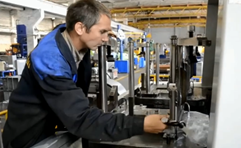
TPM is a production concept focused on ensuring equipment reliability, eliminating defects and incidents. One of the TPM elements is autonomous maintenance which implies simple maintenance operations by the operators themselves, whereas complex measures and repairs are carried out by the technical service.
During the session the participants will learn the first three steps to switch to autonomous equipment maintenance. They will take a pilot equipment unit to realize measures to increase and sustain the OEE. The participants will finally be able to to roll out the project in other areas.
4 days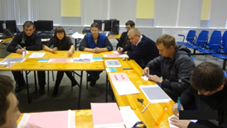
The session participants will get to know the approaches and methods of quality by design in the production process. First they will go through a business case simulation. And then they will use the new skills to start applying the built-in quality instruments on a pilot process and to practically realize the principle of ‘don’t accept defects, don’t make defects, don’t pass defects on’.
4 daysSend us your inquiry via e-mail or telephone us.